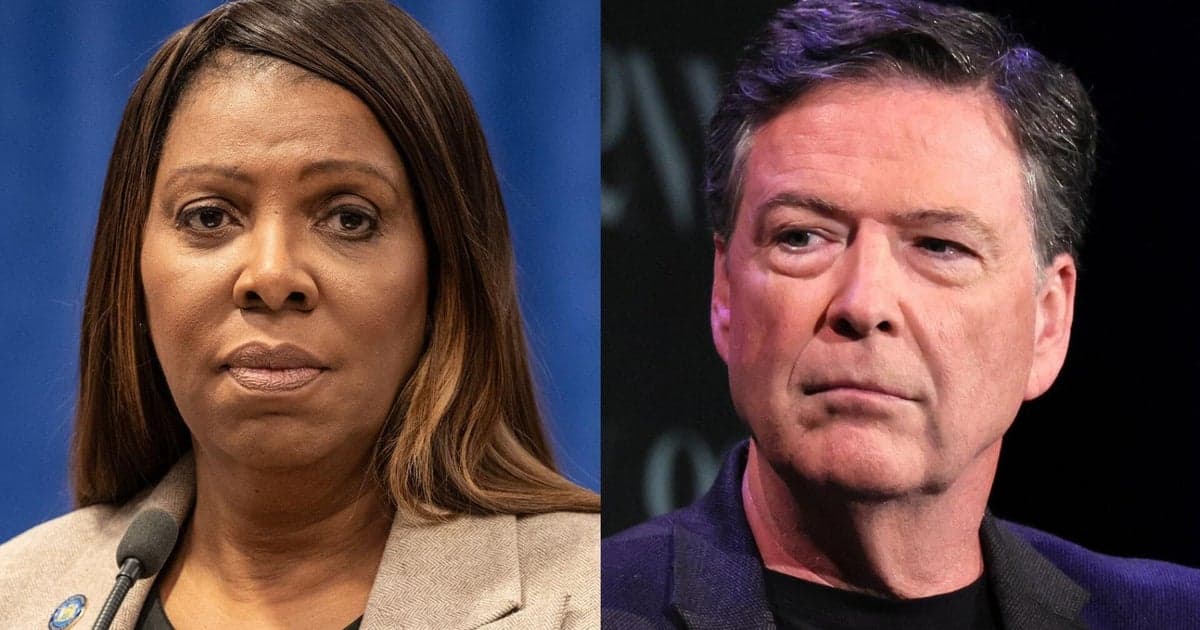Judge Tosses Indictments Against Comey, James, Citing Unlawful Prosecutor Appointment
A federal judge dismissed criminal cases against former FBI Director James Comey and New York Attorney General Letitia James, ruling the prosecutor who brought the charges was unlawfully appointed. The decision undercuts a pattern of controversial interim staffing moves, leaves the door open for refiling, and raises fresh questions about Justice Department credibility and political risk in high profile prosecutions.

U.S. District Judge Cameron McGowan Currie on Monday dismissed criminal indictments against James Comey and Letitia James, finding that Lindsey Halligan, the prosecutor who filed the cases, lacked lawful authority to serve as interim United States attorney for the Eastern District of Virginia. Judge Currie ordered that actions flowing from Halligan's appointment, including the indictments, be set aside and dismissed the cases without prejudice, allowing prosecutors the option to refile under a properly appointed official.
The rulings represent a significant judicial rebuke of what the judge described as a staffing pattern from the Trump era designed to place politically aligned prosecutors in key roles. While the judge did not reach the merits of the underlying allegations, the procedural finding effectively halted two of the most politically charged prosecutions of the moment. Both Comey and James had pleaded not guilty and contended that the cases were politically motivated.
By vacating the indictments on procedural grounds rather than dismissing with prejudice, the court preserved the Department of Justice's ability to restart prosecutions, leaving the ultimate outcome uncertain. The Justice Department now faces a choice between appealing Judge Currie's decision to a higher court or refiling charges once prosecutors are properly installed. Either route would prolong litigation and could generate additional legal and political costs.
Beyond the immediate litigation, the case highlights structural vulnerabilities in the mechanisms used to fill senior prosecutorial posts. The ruling will likely intensify scrutiny of how interim appointments are made and could spur calls in Congress and among legal scholars to clarify appointment rules to prevent similar disruptions. For prosecutors and defense counsel, the decision underscores how questions about authority and appointment can derail even high profile cases before evidence is tested in court.
The political reverberations are likely to be acute. The dismissals feed into broader narratives about the politicization of law enforcement that have animated debates since the 2016 election. For elected officials and public servants, the decision raises questions about the durability of politically charged prosecutions as an instrument of accountability or political strategy. For voters, the resolution without a substantive ruling on the charges may deepen skepticism about the impartiality of legal institutions.
There are also market and economic implications, albeit indirect. High profile legal uncertainty can raise regulatory and political risk premiums for corporate governance, mergers and acquisitions, and executive conduct, particularly for firms with exposure to government regulation. Prolonged legal disputes increase litigation costs and can distract senior management, with potential effects on firm valuation and investor sentiment.
Judge Currie issued the decision on November 24, 2025, closing a chapter of procedural dispute while leaving open a longer fight over venue, authority and the rules governing who may wield the power to bring federal criminal charges. How the Justice Department responds will determine whether these cases resume, and whether the ruling prompts a broader reform of appointment practices that have increasingly come under fire.


